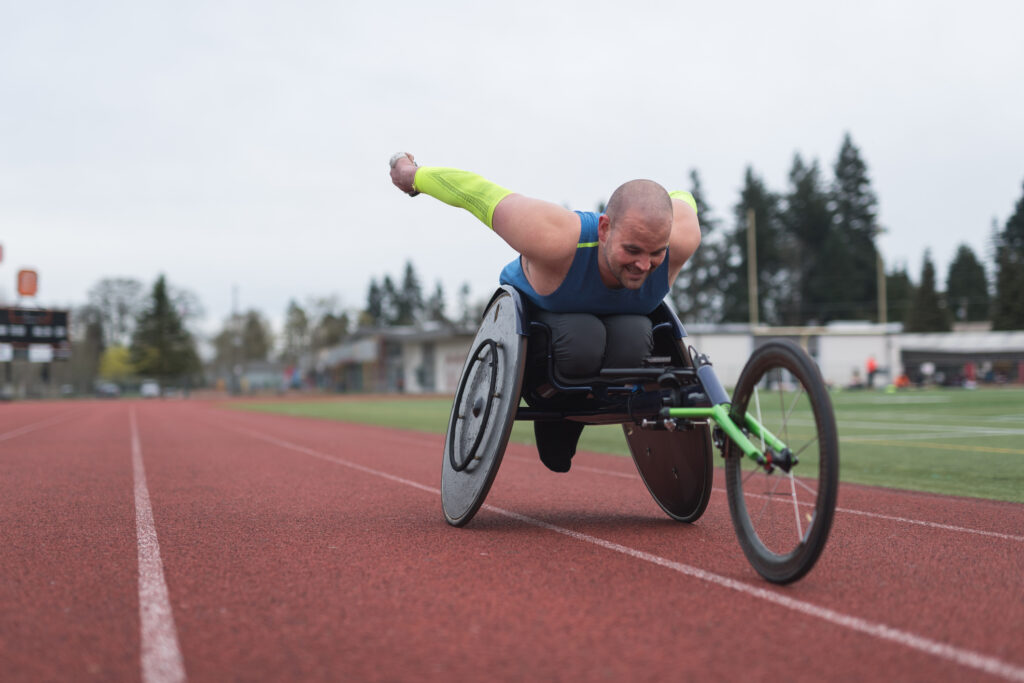Whether stopping a car in an emergency, biting your tongue in a heated moment, or holding back from a risky move in a game, inhibitory control helps us pause before we act. This essential mental skill allows us to resist impulses, stay focused, and make sound decisions under pressure — whether in daily life, social interactions, competitive sports, or other high-stakes situations.
While rooted in brain function, this inhibitory control does not exist in isolation from the body. Growing evidence suggests that cardiovascular fitness is linked to various aspects of cognitive performance. VO₂max is one of the strongest independent predictors of long-term health and survival, associated with reduced disease risk and better quality of life. However, it is less clear whether improving VO₂max through structured training can specifically enhance inhibitory control, a question we set out to answer with our study.
We chose to investigate this among healthy but physically inactive young adults, an age group regarded as being at its cognitive peak. However, physical inactivity may already limit this potential in that many young adults spend much of their day in desk-based work or study. Such a lifestyle not only raises the risk of chronic disease but may also compromise core aspects of cognitive performance, particularly inhibitory control, earlier than expected. As sedentary habits increasingly define modern life, clarifying whether long-term aerobic training can boost inhibitory function has never been more relevant.
In our 12-week randomized controlled trial, physically inactive young adults were assigned either to a supervised cycling program or a control group that did not engage in structured exercise. Training sessions started at shorter durations and moderate intensity, and then progressively increased to 60 minutes and moderate-to-high intensity in the later weeks. We assessed inhibitory control before the intervention, at six weeks, and at 12 weeks, and also recorded brain activity (using electroencephalography (EEG)) to examine underlying neural changes.
By the end of the program, participants were not just fitter — they were also cognitively sharper. The exercise group showed improved VO₂max and significant gains in inhibitory control compared to the control group. EEG analyses revealed that these behavioral improvements were followed by brain changes — specifically, faster neural processing speed and more efficient brain responses during the task. The pattern observed suggests that benefits of training accumulate over time with behavioral performance improving steadily across the program, but that neural adaptations emerged later, potentially supporting the persistence of these gains.
Our study had several notable strengths that add both scientific rigor and practical relevance. The randomized controlled design provides strong evidence for a causal link between cardiovascular training and better inhibitory control. EEG measurements offered mechanistic insight, revealing how improvements unfolded from behavior to brain over the course of the intervention. Young physically inactive adults are an increasingly important group and are of growing public health concern. Finally, our program was accessible and scalable, making it suitable for implementation in workplaces, universities, or community fitness settings.
Our findings reinforce VO₂max as a critical target for both physical and cognitive health, offering researchers new evidence for its role in brain function. Aerobic training can help individuals maintain mental sharpness under pressure, something certainly of value as personal trainers and coaches set goals with clients and athletes. Clinicians, educators, and policymakers can view these results as further support for promoting structured cardiovascular activity in young adults — not only to prevent disease later in life, but also to improve mental performance here and now.
Improving cardiovascular fitness can help sustain high-level mental performance. A stronger “braking system” — the brain’s ability to stop or change a response — may support rapid but controlled decisions in the moments that matter most.

Tomasz S. Ligeza, PhD, is a psychologist and researcher at the Institute of Psychology, Jagiellonian University in Poland. His work bridges psychophysiology, exercise physiology, and neuroscience, exploring how physical activity shapes brain function, mood, and cognition. Specializing in advanced EEG analysis, he has led multiple projects funded by the National Science Centre in Poland and collaborated with various institutions including Northeastern University, University of Illinois at Urbana-Champaign, and University of Münster.




